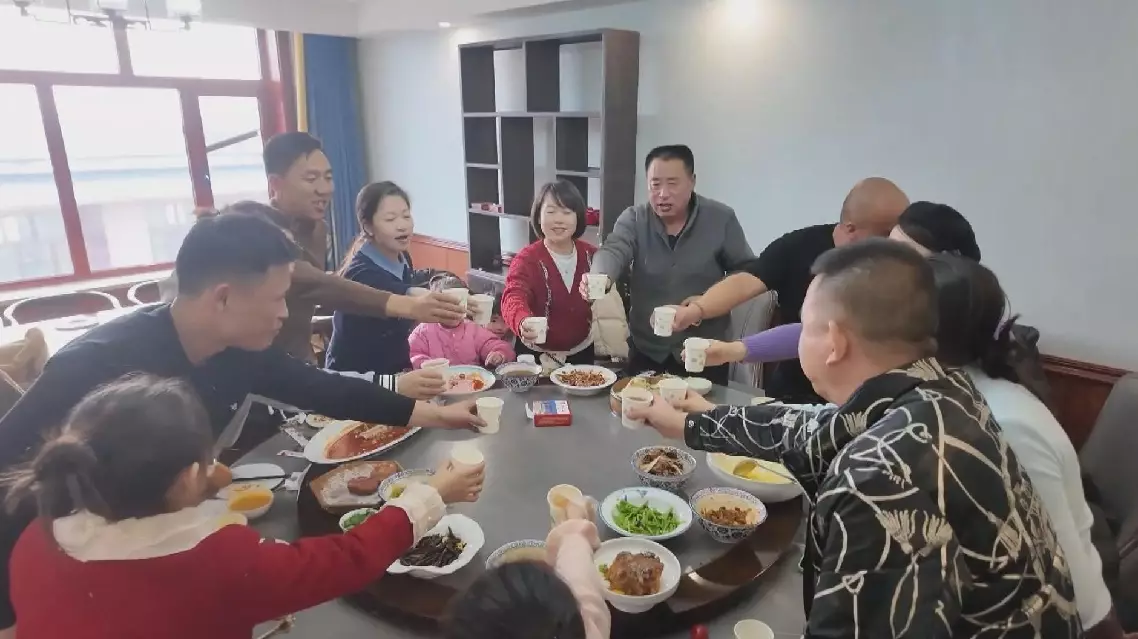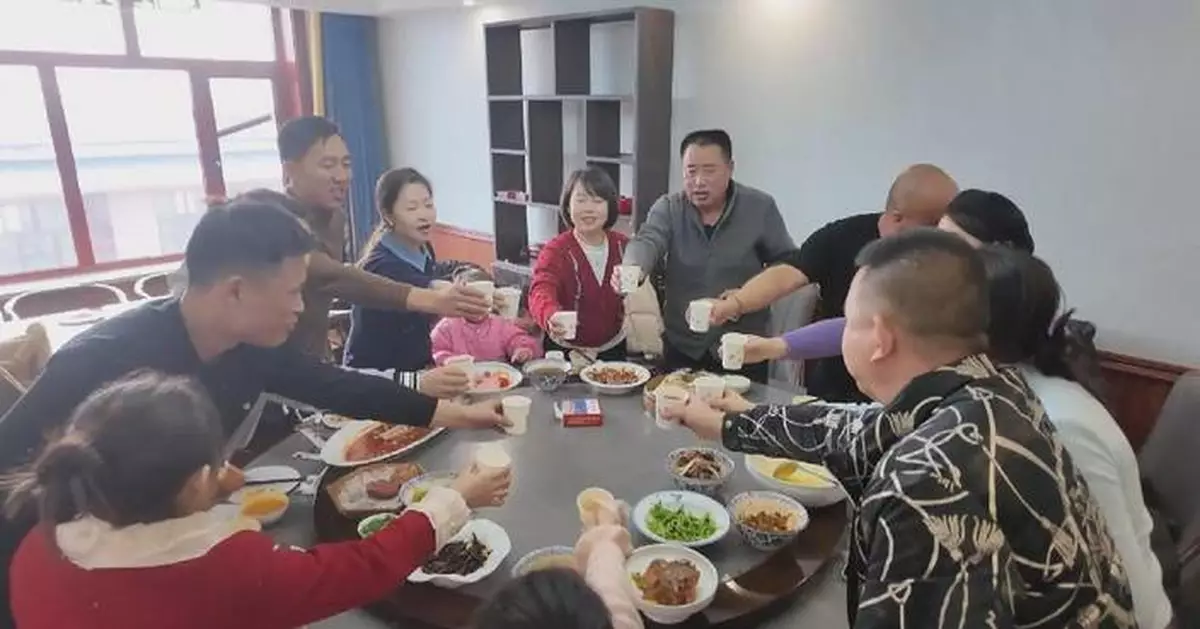Traditional delicacies are a must for Chinese people's celebration of the Spring Festival, especially with those in eastern and northwestern China.
The festival, or the Chinese New Year, marks the beginning of the lunar new year, and is a time for family reunions and cultural festivities, as well as for making best wishes.
This year, the Spring Festival fell on January 29, ushering in the Year of the Snake -- the sixth animal in the 12-year Chinese zodiac cycle. In Taizhou City of east China's Jiangsu Province, the morning tea culture is a local culinary highlight.
During the Spring Festival, morning tea shops across the streets and alleys of the city are bustling with business.
Taizhou's morning tea is famous for its hot shredded tofu with baozi, steamed dumplings, shaomai and a bowl of fish soup noodles, all of which are traditional Chinese foods.
This rich combination of nutrition and flavor attracts food lovers from all over the country.
"We happened to be here for the New Year, so I brought my elders and children here for a traditional early tea to experience the festive atmosphere, " said a visitor from neighboring Changzhou City.
A time-honored morning tea shop also showcased the art of making distinctive noodles called the jumping noodles. With a dough under a wooden rod, the chef sits on the opposite end of the rod, jumping up and down to process the dough.
Then, the dough is rolled and sliced into fine strips, creating chewy noodles.
The chefs then simmer the noodles in a rich broth made from yellow eel bones, pork bones and carp.
A traditional banquet consisting of 13 different dishes is a big draw during the Spring Festival in Xiji County, northwest China's Ningxia Hui Autonomous Region.
In Xiji, gathering around the table to enjoy this feast is an essential ritual for the Chinese New Year.
The meal consists of nine steamed dishes such as crispy meat, meatballs and mutton, along with a plate of fish and three cold dishes.
Its emphasis on steamed dishes preserves the natural flavors of the ingredients while creating a delicate taste suitable for all ages.
"The family gathering (for a meal) signifies perfection and reunion," said Ma Xiaohua, a local resident.
"This is a specialty dish and a traditional dish. My New Year's wish is for the health and safety of my family," said Ma Xiaojing, another resident.

Traditional delicacies indispensable in celebrating Chinese New Year





















































